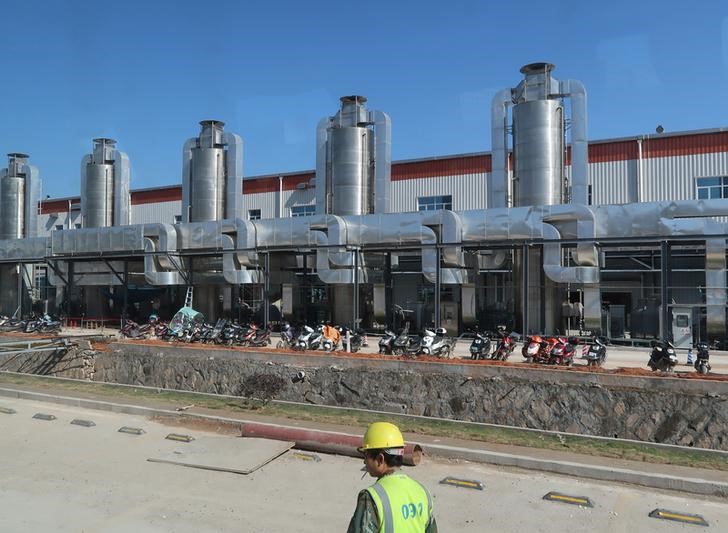BEIJING (Reuters) - China's manufacturing sector looks set to go into 2017 humming as industrial firms benefit from stronger prices for their products and a recovery in demand.
The official manufacturing Purchasing Managers' Index (PMI) is expected to come in at 51.5 in December, according to the median forecast of 24 analysts polled by Reuters.
That would be slightly lower than November's 51.7, but a fifth straight month of expansion and the second-highest reading in 2016.
A reading below 50 points suggests a contraction in activity while one above signifies an expansion on a monthly basis.
November's 51.7 level, a more than two-year high, reflected a housing and infrastructure spree that fuelled stronger demand and higher prices for building materials, boosting sales for related companies from engineering firms to property agents.
Data released on Tuesday showed profits at industrial companies rose at the fastest pace in three months in November, with the extra income offering some relief for the many debt-laden companies in smokestack industries.
Profits in November rose 14.5 percent to 774.6 billion yuan ($111 billion) from a year earlier, the highest since August's record 19.5 percent spike, National Bureau of Statistics (NBS) said.
But "growth was overly reliant on a price rebound in raw material industries such as oil refining, and iron and steel", NBS said.
Producer prices rose at the fastest pace in more than five years in November as prices of coal, steel and other building materials soared.
INFLATIONARY PRESSURES
The PMI survey has also pointed to building inflationary pressures, but China's policymakers are unlikely to worry about higher prices until consumer inflation reaches 3 percent, analysts say.
China's consumer prices in November rose 2.3 percent from a year earlier.
Despite the rebound in China's manufacturing sector since August, most analysts say the economy will face fresh challenges next year as stimulus wears off and a housing boom slows.
But recent signals from China's top leaders that more will be done in 2017 to crack down on asset bubbles, even at the expense of slower growth, mean additional stimulus measures could be limited.
The official manufacturing PMI data will be released on Jan. 1, along with the official non-manufacturing PMI.
In November, expansion of China's services sector accelerated to the highest level since June 2014. Beijing has been counting on a strong services sector to pick up the slack as it tries to shift the economy away from dependence on heavy industry and manufacturing exports.
The Markit/Caixin PMI, a private gauge of manufacturing activity which focuses more on small- and mid-sized firms, is due on Jan. 3.

Analysts in a Reuters poll expect it to fall to 50.7, from the previous month's reading of 50.9.